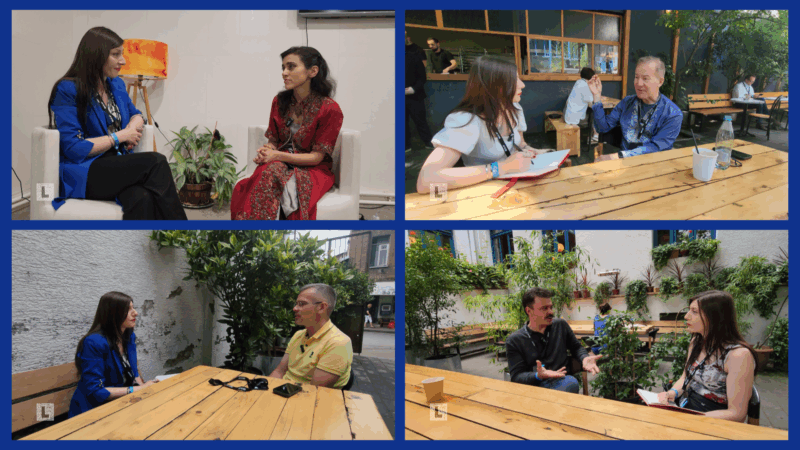Analyses of conflict zones and experiences from war hotspots
A series of interviews about crisis areas and personal experiences of journalists and humanitarians - Sееma Jilani, Michael Bociurkiw, Adelin Pertisor and Giorgi Dolidze in this Labyrinth.
This week, Labyrinth in Tbilisi at one of the biggest journalism events - the ZEG Festival. We had the opportunity to talk to journalists from all over the world about the current situation in their countries. We present you a series of interviews about the countries that are currently in the global focus.
We spoke with one of the keynote speakers at the event, a doctor who has dedicated her life to treating children in the most vulnerable places in the world, Seema Jilani. We talked about the great humanitarian catastrophe unfolding before our eyes, the Gaza Strip, and how we can help people cut off from all help. Seema also shared her personal experience of what it feels like to treat her own child injured in an explosion in Beirut.
The war in Ukraine is still raging, and since the coming to power of US President Donald Trump, Russian attacks on the Ukrainian capital seem to have increased. Meanwhile, in the Middle East, Israel and Iran are fiercely attacking each other. We talk about the situation in Ukraine and the current hot spots in the Middle East with Atlantic Council analyst Michael Bociurkiw, who regularly analyzes for CNN and other global media.
At the event, we also had the opportunity to talk with our colleague Adelin Pertisor from the Romanian public service, who is one of the most experienced war reporters. He reported on wars in the Middle East, Africa, as well as the Balkan conflicts and had the opportunity to interview a large number of leaders, but also some notorious militants such as Željko Ražnjatović - Arkan. Of course, we also talked about the situation in Romania after the annulled elections when the Constitutional Court recognized Russian influence in the electoral process.
Since Georgia got a new pro-Russian President who imposed a series of undemocratic laws, Georgians have been protesting every day. Media freedom and civil society are under attack, and journalists and citizens are facing prison sentences. We talk to Georgian colleague Giorgi Dolidze about what is happening in his country.
Watch the full episode.




